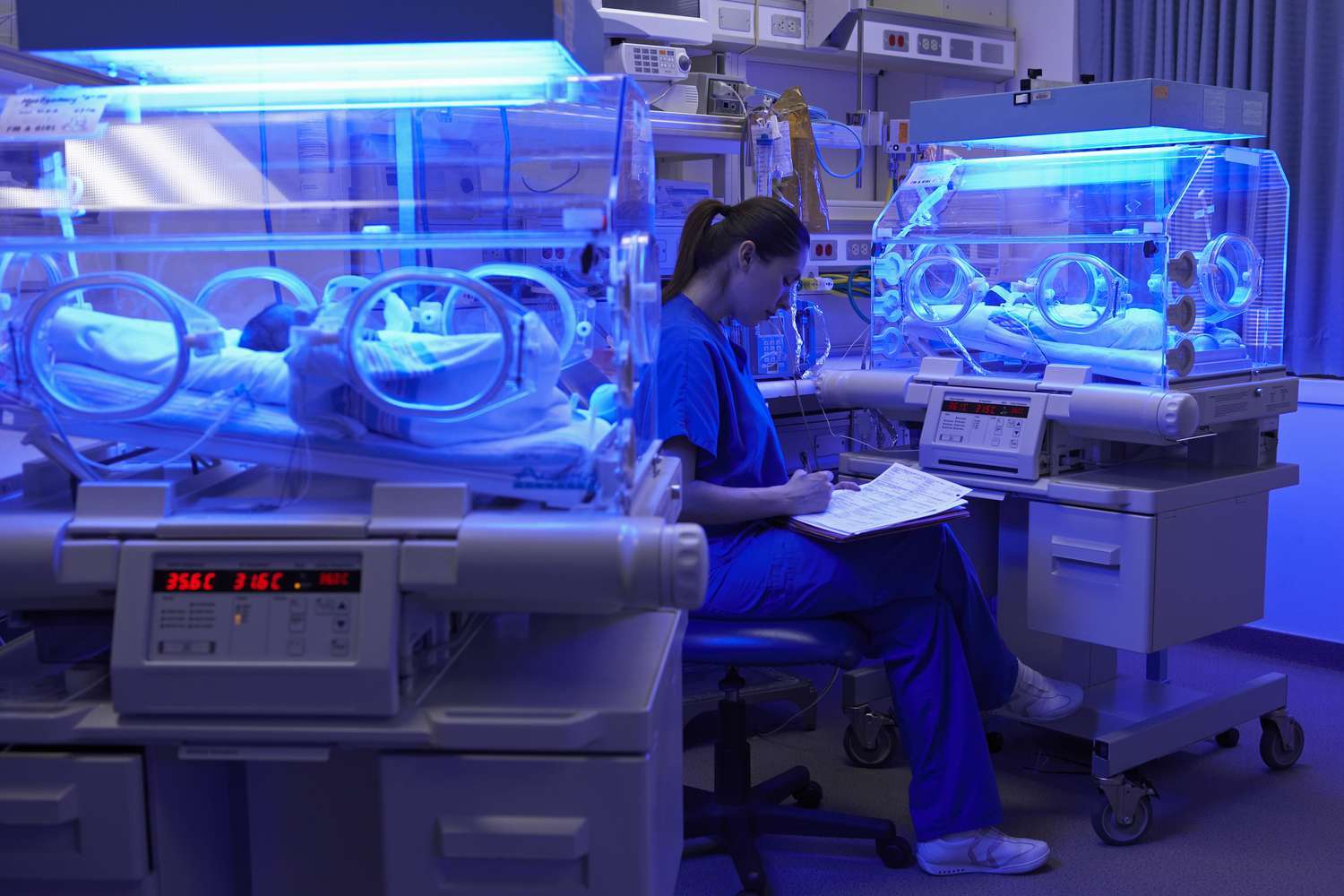Neonatal Intensive Care Unit (NICU) is a specialized medical facility that provides critical care for newborn infants who are born prematurely, have medical complications, or require specialized treatment. In this article, we will explore the essential aspects of neonatal intensive care units, including their purpose, services offered, and the dedicated healthcare professionals who work tirelessly to ensure the well-being of these vulnerable infants.
Table of Contents
- Introduction: Understanding the Neonatal Intensive Care Unit
- Neonatal Intensive Care Unit Services
- 2.1. Advanced Medical Equipment and Technology
- 2.2. Respiratory Support
- 2.3. Nutritional Support
- 2.4. Monitoring and Observation
- 2.5. Medication Administration
- 2.6. Surgical Procedures
- The NICU Team: Multidisciplinary Care
- 3.1. Neonatologists
- 3.2. Neonatal Nurses
- 3.3. Respiratory Therapists
- 3.4. Dietitians
- 3.5. Occupational and Physical Therapists
- Specialized Care for Different Neonatal Conditions
- 4.1. Prematurity
- 4.2. Respiratory Distress Syndrome (RDS)
- 4.3. Neonatal Infections
- 4.4. Congenital Abnormalities
- Family-Centered Care: Involving Parents in the Healing Process
- Emotional Support for Families
- Advancements in Neonatal Intensive Care
- Conclusion
- FAQs
- FAQ 1: How long do infants typically stay in the NICU?
- FAQ 2: Is it possible for parents to spend time with their baby in the NICU?
- FAQ 3: Are all NICUs the same?
- FAQ 4: What should parents expect when their baby is discharged from the NICU?
- FAQ 5: How can parents support their baby’s development after leaving the NICU?
1. Introduction: Understanding the Neonatal Intensive Care Unit
Neonatal Intensive Care Unit, often referred to as the NICU is a specialized medical facility within a hospital that provides around-the-clock care for newborn infants who require intensive medical attention. The NICU is designed to cater to the unique needs of premature babies, infants with medical complications, or those who need specialized treatment shortly after birth.
2. Neonatal Intensive Care Unit Services
The NICU offers a wide range of services to ensure the well-being and optimal development of newborn infants. Let’s explore some of the key services provided in the NICU.
2.1. Advanced Medical Equipment and Technology
The NICU is equipped with state-of-the-art medical equipment and technology to monitor and support the delicate health of newborns. This includes incubators, ventilators, cardiac monitors, pulse oximeters, and infusion pumps, among other specialized tools.
2.2. Respiratory Support
Premature infants and those with respiratory difficulties often require respiratory support to assist their breathing. Neonatal Intensive Care Unit provides various interventions, such as continuous positive airway pressure (CPAP) and mechanical ventilation, to ensure adequate oxygenation and ventilation.
2.3. Nutritional Support
Newborns in the NICU may have challenges with feeding and require specialized nutrition. The NICU staff, including dietitians and lactation consultants, work closely with the parents to develop individualized feeding plans and provide support for breastfeeding or alternative methods of nutrition.
2.4. Monitoring and Observation
Continuous monitoring and observation are essential in the NICU to detect any changes in the infant’s condition promptly. This includes monitoring vital signs, oxygen saturation levels, heart rate, and respiratory rate.
2.5. Medication Administration
Infants in the NICU often require medications to manage various conditions or prevent complications. The administration of medications is carefully monitored, ensuring appropriate dosages and close observation of the infant’s response.
2.6. Surgical Procedures
In some cases, newborns may require surgical interventions to address congenital abnormalities or correct specific conditions. The NICU provides a sterile environment and skilled surgical teams to perform these procedures safely.
3. The NICU Team: Multidisciplinary Care
The neonatal intensive care unit operates under a multidisciplinary approach, involving a dedicated team of healthcare professionals with specialized expertise in neonatal care. Let’s explore some of the key members of the NICU team.
3.1. Neonatologists
Neonatologists are specialized pediatricians who focus on the medical care of newborn infants, particularly those who require intensive care. They oversee the treatment plans, monitor progress, and provide guidance to the NICU team.
3.2. Neonatal Nurses
Neonatal nurses are highly skilled professionals who provide round-the-clock care to newborn infants in the NICU. They administer medications, monitor vital signs, perform procedures, and provide emotional support to both the infants and their families.
3.3. Respiratory Therapists
Respiratory therapists play a crucial role in the NICU, providing respiratory support and managing the various interventions required for infants with breathing difficulties. They assist with the administration of oxygen, perform respiratory treatments, and monitor the infant’s respiratory status.
3.4. Dietitians
Dietitians in the NICU are responsible for developing tailored feeding plans for infants with specific nutritional needs. They collaborate with parents to ensure the infants receive the appropriate nutrition for growth and development.
3.5. Occupational and Physical Therapists
Occupational and physical therapists work with infants in the NICU to support their motor development and help them reach important developmental milestones. They provide gentle exercises and techniques to enhance muscle strength and coordination.
4. Specialized Care for Different Neonatal Conditions
The NICU provides specialized care for various neonatal conditions. Let’s explore some of the common conditions that require attention in the NICU.
4.1. Prematurity
Premature infants, born before 37 weeks of gestation, often require intensive care in the NICU. They may have underdeveloped organs and need support to regulate body temperature, breathe independently, and feed effectively.
4.2. Respiratory Distress Syndrome (RDS)
Respiratory Distress Syndrome is a condition commonly seen in premature infants due to insufficient surfactant production in their lungs. The NICU provides respiratory support and surfactant replacement therapy to help infants with RDS breathe more easily.
4.3. Neonatal Infections
Newborns are vulnerable to infections due to their immature immune systems. The NICU carefully monitors for signs of infection and provides appropriate treatment, including antibiotics, to manage infections effectively.
4.4. Congenital Abnormalities
Some infants are born with congenital abnormalities that require immediate attention and specialized care. The NICU provides a supportive environment and access to surgical interventions, if necessary, to address these abnormalities.
5. Family-Centered Care: Involving Parents in the Healing Process
The NICU recognizes the crucial role of parents in the care and healing process of their newborn. Family-centered care is a key principle followed in the NICU, encouraging parents to actively participate in their baby’s care. Parents are encouraged to hold their infants, provide kangaroo care (skin-to-skin contact), and be involved in the decision-making process regarding their baby’s treatment.
6. Emotional Support for Families
Having a baby in the NICU can be an emotionally challenging experience for families. The NICU offers various forms of emotional support, including counseling services, support groups, and access to social workers who help families navigate through the complexities of their journey.
7. Advancements in Neonatal Intensive Care
Advancements in medical technology and research have significantly improved the outcomes for infants in the NICU. The development of specialized equipment, novel treatment approaches, and an enhanced understanding of neonatal physiology continue to advance the field of neonatal intensive care.
8. Conclusion
The neonatal intensive care unit plays a vital role in providing specialized care to newborn infants who require intensive medical attention. With a dedicated team of healthcare professionals, advanced medical equipment, and a family-centered approach, the NICU strives to ensure the well-being and optimal development of these vulnerable newborns.
9. FAQs
FAQ 1: How long do infants typically stay in the NICU?
Infants’ length of stay in the NICU varies depending on their individual needs. Some infants may require a few days, while others may need several weeks or months of care.
FAQ 2: Is it possible for parents to spend time with their baby in the NICU?
Yes, parents are encouraged to spend time with their babies in the NICU. The NICU staff provides opportunities for parents to bond with their infants through activities such as kangaroo care and involvement in daily care routines.
FAQ 3: Are all NICUs the same?
No, NICUs can vary in terms of the level of care they provide. Some hospitals have different levels of NICUs, ranging from Level I (basic care) to Level IV (highest level of care for critically ill newborns).
FAQ 4: What should parents expect when their baby is discharged from the NICU?
Before discharge, parents receive thorough instructions on their baby’s care, including feeding, medication administration, and follow-up appointments. They may also be provided with resources for ongoing support and assistance.
FAQ 5: How can parents support their baby’s development after leaving the NICU?
Parents can continue to support their baby’s development by following the guidance provided by the NICU team, attending regular check-ups, and engaging in activities that promote growth and development, such as tummy time and age-appropriate play.
In conclusion, the neonatal intensive care unit is a crucial component of healthcare facilities, providing specialized care and support to newborn infants in need. With their comprehensive services, multidisciplinary teams, and advancements in medical technology, NICUs continue to save lives and improve the outcomes of vulnerable newborns and their families.



